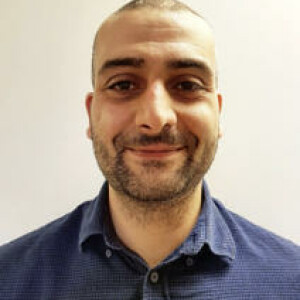Optimizing Adeno-associated Virus for Gene Therapy Treatment of Macular Degeneration
Advanced age-related macular degeneration (AMD), the most common cause of vision impairment in the western world, is a therapeutic challenge. Wet AMD pharmacological therapies are based on repeated injections of anti-Vascular Endothelial Growth Factor (VEGF) to suppress formation of new blood vessels (angiogenesis). However these therapies are not risk free. Repeated injections can cause complications and in the long term these therapies may promote dry AMD for which, unfortunately there is no current therapy available.
Our research efforts focuses on establishing a gene therapy approach that can help overcome these problems by offering a sustainable therapy, in which the inhibition of pathological formation of new blood vessels happens only when needed, avoiding repeated and long term anti-VEGF injection thus reducing the risk of dry AMD.
Avancerad åldersrelaterad makuladegeneration (AMD), den vanligaste orsaken till nedsatt syn i den västra världen, är en terapeutisk utmaning. Farmakologiska behandlingar med våt AMD (gula fläcken) baseras på upprepade injektioner av anti-vaskulär endotelväxtfaktor (VEGF) för att undertrycka bildning av nya blodkärl. Men dessa behandlingar är inte riskfria. Upprepade injektioner kan orsaka komplikationer och på lång sikt kan dessa behandlingar främja torr AMD för vilken det inte finns aktuell behandling.
Vår forskning fokuserar på att upprätta en genterapimetod som kan hjälpa till att övervinna dessa problem genom att medföra en hållbar terapi, där hämningen av patologisk bildning av nya blodkärl bara sker vid behov, där man undviker upprepad och långvarig anti-VEGF-injektion och därmed minskar risk för torr AMD.
